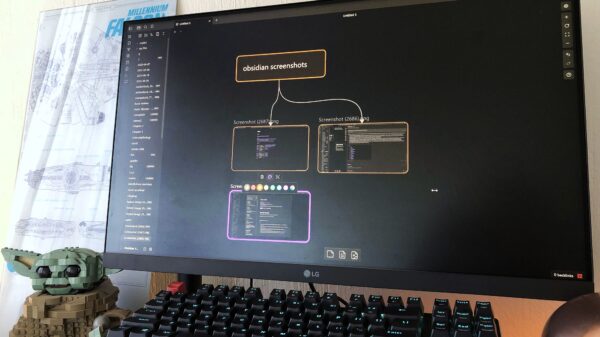URGENT UPDATE: As the countdown to the 2024 U.S. presidential election accelerates, new research reveals that Artificial Intelligence (AI) is rapidly transforming how voters engage with political information. Large language models (LLMs) like ChatGPT and those from Google are now pivotal players in shaping public perception, raising critical questions about the integrity of democracy.
Recent findings show that over half of Americans now utilize AI tools to gather insights on candidates and election issues. This surge comes as traffic to traditional news outlets declines, indicating a seismic shift in how political information is disseminated. As we approach the 2026 midterms, the implications of this technology on our democratic processes are profound.
Researchers are sounding the alarm about the uncharted influence of LLMs on voter beliefs. Unlike conventional news sources, these AI systems operate as “black boxes,” obscuring the sources and biases that shape their outputs. This lack of transparency could lead to voters receiving skewed information that aligns with hidden political biases.
With the 2024 election on the horizon, model providers are under pressure to implement safeguards. OpenAI has committed to preventing its technology from “undermining the democratic process,” while Google has pledged a cautious approach to election-related topics. However, the effectiveness of these measures remains uncertain.
To investigate these dynamics, researchers designed an extensive study involving nearly 600 questions about candidates and election processes. Each question was posed in 21 variations, allowing them to explore how demographic cues influenced AI responses. From July 2024 onward, a dozen AI models, including those from Anthropic and Perplexity, generated a staggering 16 million responses.
The results highlighted alarming trends. AI responses shifted over time, sometimes correlating with model updates, but other changes lacked clear explanations. This inconsistency risks misleading voters about who candidates are and what issues matter most. For instance, responses to healthcare questions varied dramatically based on whether the prompt suggested a Democratic or Republican viewpoint.
The study underscores an urgent need for independent audits of AI models. Researchers emphasize the importance of transparency and accountability as these tools gain traction in shaping political narratives. Without systematic checks, there is a risk of repeating past mistakes seen during the rise of social media.
As AI continues to evolve, its role in politics cannot be understated. The ramifications of these technological shifts are profound, and as we approach crucial elections, the public and policymakers must remain vigilant. The future of informed voting hangs in the balance.




































































